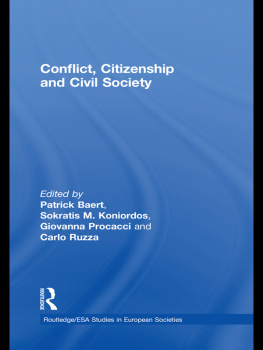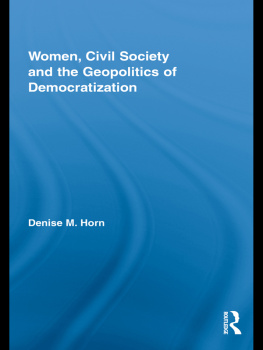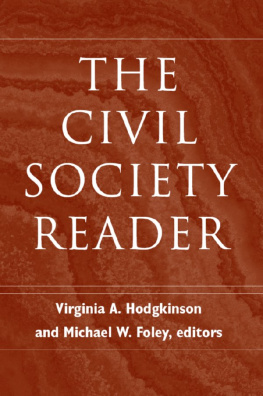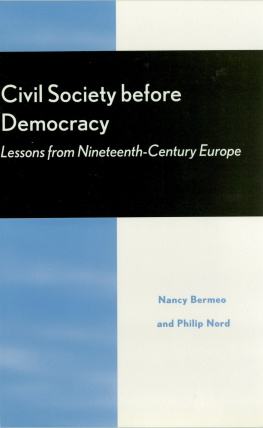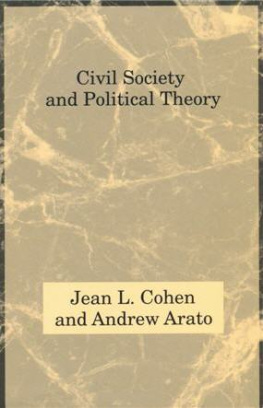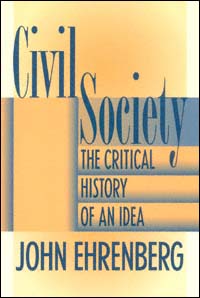John R. Ehrenberg - Civil Society: The Critical History of an Idea
Here you can read online John R. Ehrenberg - Civil Society: The Critical History of an Idea full text of the book (entire story) in english for free. Download pdf and epub, get meaning, cover and reviews about this ebook. year: 1999, publisher: NYU Press, genre: Politics. Description of the work, (preface) as well as reviews are available. Best literature library LitArk.com created for fans of good reading and offers a wide selection of genres:
Romance novel
Science fiction
Adventure
Detective
Science
History
Home and family
Prose
Art
Politics
Computer
Non-fiction
Religion
Business
Children
Humor
Choose a favorite category and find really read worthwhile books. Enjoy immersion in the world of imagination, feel the emotions of the characters or learn something new for yourself, make an fascinating discovery.

- Book:Civil Society: The Critical History of an Idea
- Author:
- Publisher:NYU Press
- Genre:
- Year:1999
- Rating:4 / 5
- Favourites:Add to favourites
- Your mark:
Civil Society: The Critical History of an Idea: summary, description and annotation
We offer to read an annotation, description, summary or preface (depends on what the author of the book "Civil Society: The Critical History of an Idea" wrote himself). If you haven't found the necessary information about the book — write in the comments, we will try to find it.
In the absence of noble public goals, admired leaders, and compelling issues, many warn of a dangerous erosion of civil society. Are they right? What are the roots and implications of their insistent alarm? How can public life be enriched in a period marked by fraying communities, widespread apathy, and unprecedented levels of contempt for politics? How should we be thinking about civil society?
Civil Society examines the historical, political, and theoretical evolution of how civil society has been understood for the past two and a half millennia. From Aristotle and the Enlightenment philosophers to Colin Powells Volunteers for America, Ehrenberg provides an indispensable analysis of the possibilities-and limits-of what this increasingly important idea can offer to contemporary political affairs.
Civil Society is the winner of the Michael J. Harrington Award from the Caucus for a New Political Science of APSA for the best book published during 1999.
John R. Ehrenberg: author's other books
Who wrote Civil Society: The Critical History of an Idea? Find out the surname, the name of the author of the book and a list of all author's works by series.

